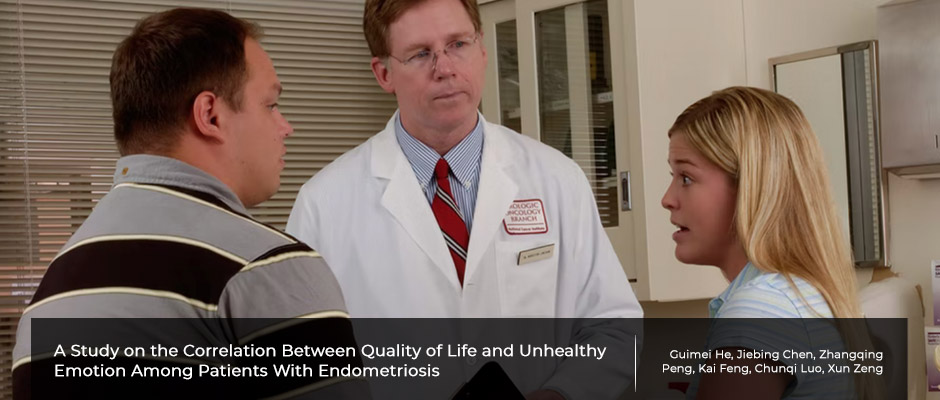Quality of Life Is Negatively Correlated With Anxiety and Depression in Endometriosis
Apr 29, 2022
Healthcare professionals should pay attention to the link between the quality of life and unhealthy emotions in women with endometriosis.
Key Points
Highlights:
- Quality of life is negatively correlated with anxiety and depression among women with endometriosis
Importance:
- Being aware of this correlation can ensure women with the disease receive the appropriate care and support to improve their prognosis.
What's done here:
- Researchers used health questionnaires to analyze the effect of quality of life on unhealthy emotions and identify factors that may be relevant to supporting patients' clinical care.
Key results:
- The main factor influencing anxiety and depression in patients with endometriosis is the mental component summary scores of the SF-12.
- The higher the mental component summary score was the lower the degree of their anxiety and depression.
- The physical component summary score of the SF-12 influenced the degree of anxiety.
- The higher the physical component summary score was, the lower the degree of anxiety.
Limitations:
- The SDS is a self-rating scale and results may be influenced by the subjectivity of the participants.
- The study only included patients treated at one center and results may be different in other centers.
Lay Summary
The quality of life of endometriosis patients is negatively correlated with anxiety and depression according to a new study published in the scientific journal Frontiers in Psychology. Based on this finding, the authors of the study suggest that improving patients' quality of life may help them “relieve their unhealthy emotions”.
In order to analyze the effect of quality of life on unhealthy emotions and identify factors that may be relevant to supporting the clinical care of patients, a team of researchers from Sun Yat-sen University in Guangzhou, China conducted a questionnaire-based study. The team used the Hamilton Anxiety Inventory, the Depression Anxiety Scale, and the 12-Item Short-Form Health Survey (SF-12). A total of 139 patients with endometriosis answered the questionnaires.
The results showed that the mental component summary scores of the SF-12 were the main factor influencing anxiety and depression among endometriosis patients. More precisely, the higher the score was the lower the degree of their anxiety and depression.
SF-12’s physical component summary score, on the other hand, influenced the degree of anxiety. Similar to the mental component summary scores, the higher the physical component summary scores were, the lower the degree of anxiety.
According to the authors, this study shows for the first time in China that endometriosis patients’ quality of life is negatively correlated with anxiety and depression. The findings are of great importance as they alert healthcare professionals to pay more attention to the link between the quality of life and unhealthy emotions among patients with the disease, the authors said.
“The study encourages the active involvement of family members and reckons that it is very important to promote relevant support from family members, enhance patients’ confidence, and improve patients’ prognosis, which may provide a reference for relevant clinical nursing,” they wrote.
Research Source: https://pubmed.ncbi.nlm.nih.gov/35360628/
quality of life anxiety depression mental health Hamilton Anxiety Inventory Depression Anxiety Scale SF-12

